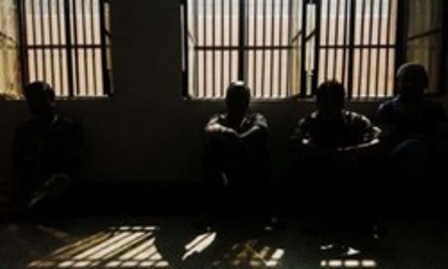Thanks to large number of arrests during the ongoing Rangers-led targeted operation, that has helped restore peace to the city with a significant drop in the number of terror attacks, killings, abductions and extortion activities, however they have also resulted in an around 50 per cent rise in the number of inmates in prisons over the past two years, officials said earlier yesterday.
They added that overcrowding of Karachi’s central and Landhi jails had always been a challenge for the authorities, but the jail population this time reached a record high due to active policing and the ongoing targeted operation.
“The actual capacity of the central prison is 2,400, but it has some 6,000 prisoners at present,” said Sindh IG prisons Nusrat Mangan. “Similarly, the Landhi jail has maximum space for 1,300 prisoners but official record shows some 3,500 behind bars in that facility.
“Our jails are facing severe overcrowding these days,” he added.
IG Mangan agreed on the point that the number of inmates had increased at a staggering pace during recent months due to consistent raids and arrests by the law-enforcement agencies. The proactive approach recently adopted by other institutions, including the Anti-Corruption Establishment and the Federal Investigation Agency, also played a role in the increase, he added.
“Overcrowded prisons have always been an issue but over the past few years, it has become even more challenging,” he said.
“Due to the shortage of space we used to accommodate a maximum of 4,000 prisoners in the Karachi central jail, which actually has a capacity of 2,400 inmates, before the operation began. But the figure touched 6,000 with frequent arrests after the operation was launched.
“In Landhi, too, the jail population increased from 2,500 to 3,500 over the past two years though its actual capacity is 1,300 prisoners.”
However, the prisons chief was confident that the issue would be resolved within the next few months with a jail proposed along the Superhighway. It would help in meeting the challenge of overcrowded jails besides addressing security concerns related to the central prison situated right in the city centre.
In October last year a 45-metre-long and 10-metre-deep tunnel being built a few metres from the central jail to spring 100 ‘dangerous militants’ was discovered by the Rangers in a house situated in a neighbouring locality.
The paramilitary force had claimed to have arrested several suspects belonging to a banned outfit when the house was raided while five more suspects were later picked up on information provided by them during interrogation. The move was followed by a jail operation during which all prisoners were searched physically that led to the recovery of electric wires, scissors, radio sets, jihadi literature, knives, party flags and a modified ladder. The house situated in Ghausia Colony, a shanty town close to the main penitentiary in Karachi, had been bought by the suspects some five months before the raid.
Just a few days after the seizure, the Sindh government decided to relocate the central jail to the Superhighway that connects the cities of Hyderabad and Karachi and is away from residential areas.
“We hope that the prison will be ready within the next few months,” said Sindh IG prisons Mangan. “Once that jail is ready and becomes operational, there will be much respite from overcrowding and security issues.”






